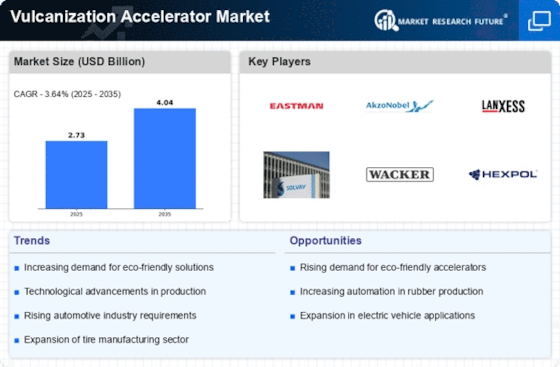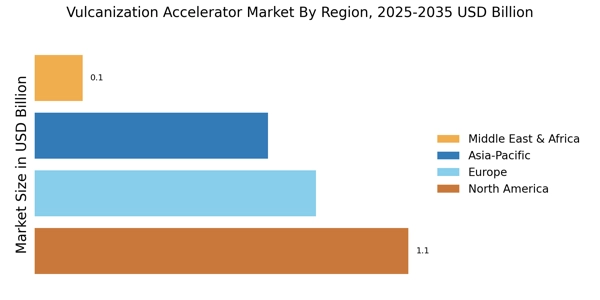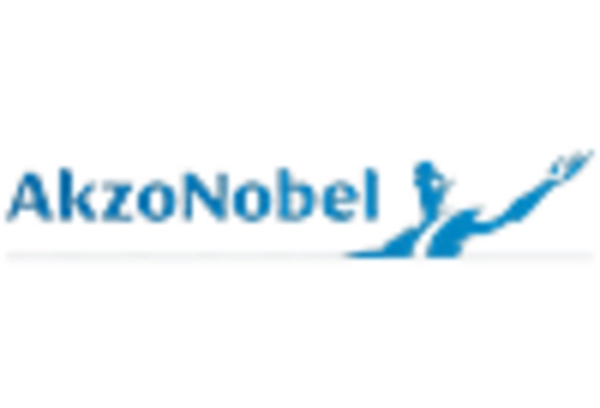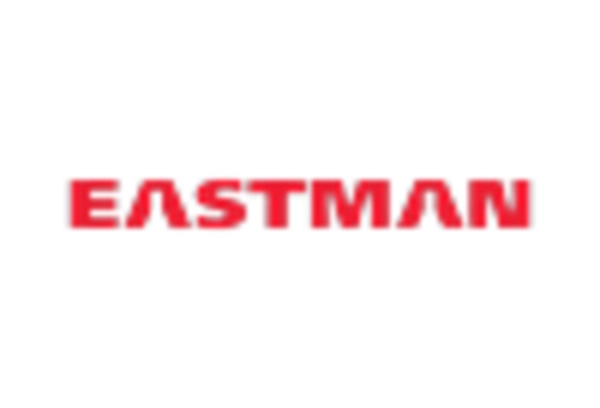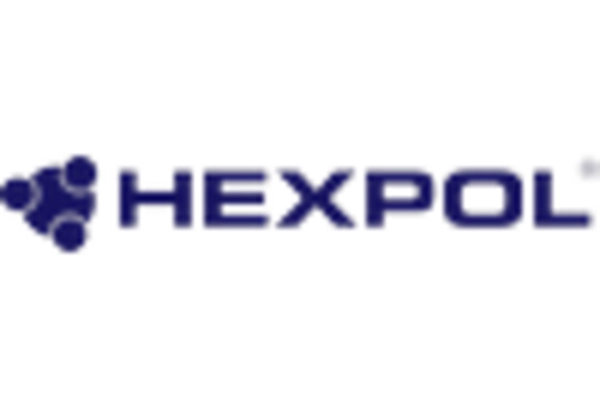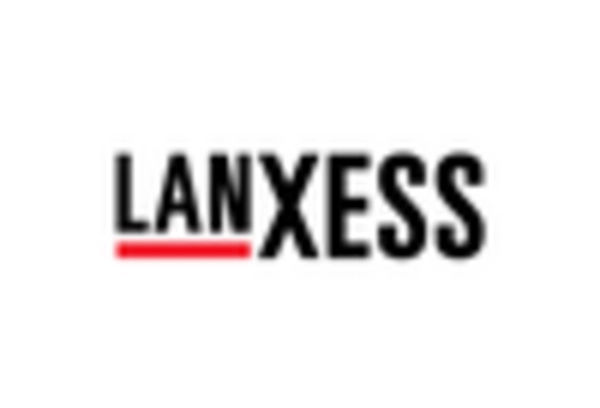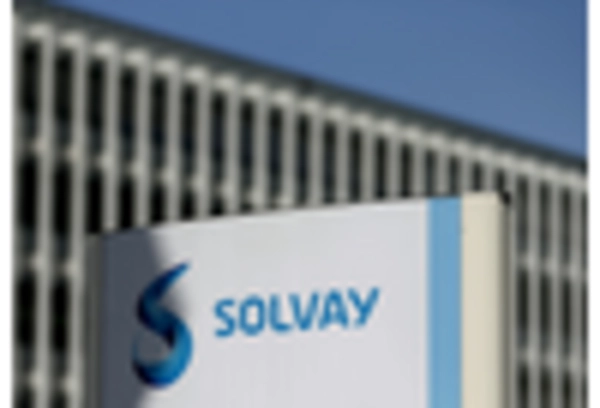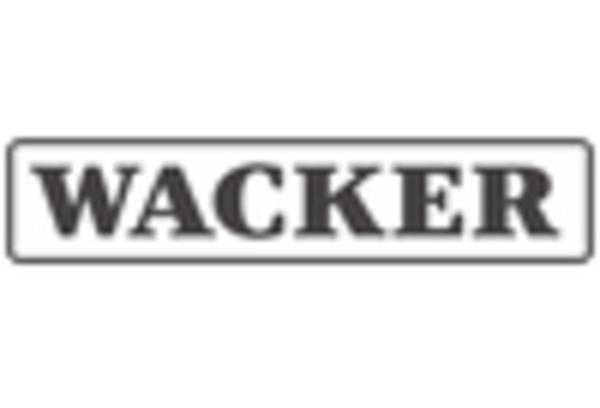Expansion of End-Use Industries
The expansion of end-use industries, particularly in emerging economies, is a crucial driver for the Vulcanization Accelerator Market. As countries industrialize, there is a marked increase in the production of rubber-based products. For example, the construction and footwear sectors are experiencing rapid growth, leading to heightened demand for vulcanized rubber. In 2025, the footwear industry is expected to grow at a rate of 5% annually, further stimulating the need for effective vulcanization accelerators. This trend indicates a robust market potential for manufacturers, as they seek to meet the rising requirements of diverse applications within the Vulcanization Accelerator Market.
Rising Demand for Rubber Products
The increasing demand for rubber products across various industries is a primary driver for the Vulcanization Accelerator Market. As sectors such as automotive, construction, and consumer goods expand, the need for high-performance rubber materials intensifies. In 2025, the automotive industry alone is projected to account for a substantial share of the rubber market, with an estimated growth rate of 4.5% annually. This surge in demand necessitates the use of effective vulcanization accelerators to enhance the properties of rubber, ensuring durability and performance. Consequently, manufacturers are likely to invest in advanced vulcanization technologies, thereby propelling the growth of the Vulcanization Accelerator Market.
Growing Awareness of Sustainable Practices
The growing awareness of sustainable practices among consumers and manufacturers is a pivotal driver for the Vulcanization Accelerator Market. As environmental concerns gain prominence, there is an increasing demand for sustainable rubber products. This trend is prompting manufacturers to explore bio-based and recyclable vulcanization accelerators, which align with eco-friendly initiatives. In 2025, it is anticipated that the market for sustainable rubber products will grow by approximately 6%, reflecting a shift in consumer preferences. Consequently, the Vulcanization Accelerator Market is likely to adapt by incorporating sustainable practices into production processes, thereby enhancing its appeal to environmentally conscious consumers.
Regulatory Compliance and Safety Standards
Regulatory compliance and the enforcement of safety standards are increasingly shaping the Vulcanization Accelerator Market. Governments and regulatory bodies are implementing stringent guidelines regarding the use of chemical additives in rubber production. This has led to a growing emphasis on the development of safer, more sustainable vulcanization accelerators. Companies are now compelled to innovate and reformulate their products to meet these regulations, which may involve significant investment in research and development. As a result, the market is likely to see a shift towards more environmentally friendly options, thereby influencing the overall dynamics of the Vulcanization Accelerator Market.
Technological Innovations in Manufacturing
Technological advancements in the manufacturing processes of vulcanization accelerators are significantly influencing the Vulcanization Accelerator Market. Innovations such as the development of eco-friendly accelerators and the implementation of automation in production lines are enhancing efficiency and reducing costs. For instance, the introduction of non-toxic accelerators is aligning with the increasing regulatory pressures for safer chemical products. Furthermore, the market is witnessing a shift towards digitalization, with predictive maintenance and real-time monitoring systems being integrated into manufacturing processes. These innovations not only improve product quality but also cater to the evolving preferences of consumers, thereby driving the Vulcanization Accelerator Market forward.


